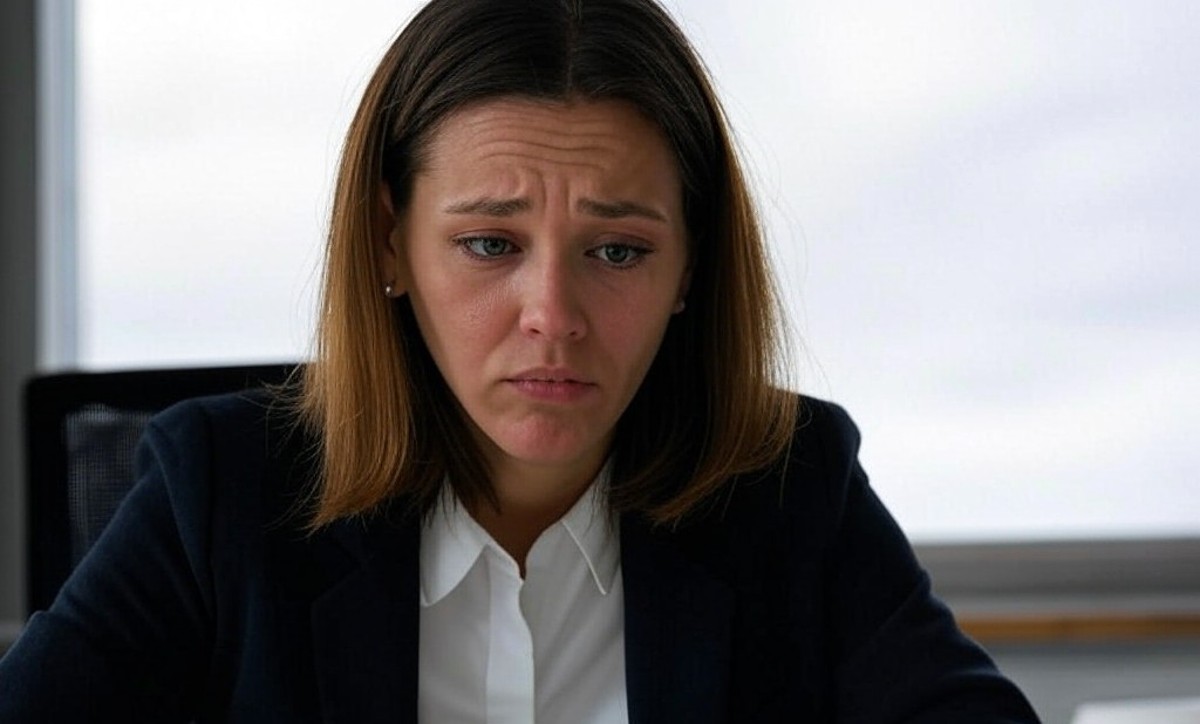 Dear readers, Catholic Online was de-platformed by Shopify for our pro-life beliefs. They shut down our Catholic Online, Catholic Online School, Prayer Candles, and Catholic Online Learning Resources—essential faith tools serving over 1.4 million students and millions of families worldwide. Our founders, now in their 70's, just gave their entire life savings to protect this mission. But fewer than 2% of readers donate. If everyone gave just $5, the cost of a coffee, we could rebuild stronger and keep Catholic education free for all. Stand with us in faith. Thank you. Help Now >
Dear readers, Catholic Online was de-platformed by Shopify for our pro-life beliefs. They shut down our Catholic Online, Catholic Online School, Prayer Candles, and Catholic Online Learning Resources—essential faith tools serving over 1.4 million students and millions of families worldwide. Our founders, now in their 70's, just gave their entire life savings to protect this mission. But fewer than 2% of readers donate. If everyone gave just $5, the cost of a coffee, we could rebuild stronger and keep Catholic education free for all. Stand with us in faith. Thank you. Help Now >
Elder abuse includes: financial exploitation, neglect, and physical abuse
FREE Catholic Classes
KANKAKEE, Ill. (Catholic Explorer) --The years of one's life after reaching 60 are often referred to as the "golden years." Unfortunately, for some seniors, those years are anything but golden as a result of elder abuse.
Highlights
Catholic Explorer (www.catholicexplorer.com)
7/28/2006 (1 decade ago)
Published in Marriage & Family
While it may take on many forms, the U.S. Administration on Aging defines it as "any knowing, intentional, or negligent act by a caregiver or any other person that causes harm or a serious risk of harm to a vulnerable adult." The state of Illinois addresses elder abuse in regard to the mistreatment of adults over 60 years old through its Elder Abuse and Neglect Program. Illinois reported that there were 3.91 reports of alleged abuse for every 1,000 adults over the age of 60 in the 2004 Survey of Adult Protective Services sponsored by the National Center on Elder Abuse. The number of victims is suspected to be higher than what is actually occurring because it is estimated that only one in every 10 cases of abuse is being reported, stated Lois Moorman, program administrator in the office of elder rights at the Illinois Dept. on Aging. Another alarming assumption Moorman pointed out about elder abuse included the prediction that "it's going to increase as the population over 60 increases." To address this growing need, caseworkers from 45 provider agencies throughout the state are trained by the Illinois Dept. on Aging to conduct investigations and work with seniors in resolving abusive situations. However, caseworkers for the Elder Abuse and Neglect Program do not handle situations regarding long-term care facilities; the state's long-term ombudsman program investigates and resolves those issues. Moorman explained that the agency is mandated by the state to respond within a few days to a call on the hotline about a case of suspected abuse. Specifically the agency responds to reports of alleged abuse, neglect or financial exploitation of persons 60 years of age and older. Provider agencies conduct investigations, intervention and follow-up services to victims. She said the idea is to "allow individuals to live as independently as possible and to live without the threat of abuse or exploitation." The 8,584 reports of alleged abuse and neglect the state received from July 1, 2004, until June 30, 2005, were categorized into seven areas--financial exploitation, physical abuse, sexual abuse, willful deprivation and confinement, emotional and passive neglect. The Illinois Dept. on Aging defines emotional abuse as "verbal assaults, threats of abuse, harassment or intimidation." Passive neglect is defined as "the caregiver's failure to provide an older person with life's necessities, including, but not limited to, food, clothing, shelter or medical care." About 60 percent of those reports were substantiated. According to Moorman, close to one-third of the reports that prompted a concerned individual to contact the state were about financial exploitation. Other prevalent forms of abuse that were reported included emotional abuse (24 percent) and passive neglect (21 percent). Financial exploitation is the most prevalent form of abuse found from the national to county level, noted Ranelle Eigsti, protective services supervisor for Catholic Charities. The Catholic social service agency has been the state's provider agency in Kankakee County for over 25 years. During a conversation with the Catholic Explorer, she said, "People always say, 'I hate to see a senior physically abused.' We have a very small percentage that are physically abused." Eigsti said about 60-70 percent of the 125 reports of alleged abuse the Kankakee office receives each year are substantiated by a caseworker that has conducted an investigation. Once a case has been substantiated, the caseworker develops a plan to address the problem that typically lasts about 15 months. It may result in referring the matter to legal counsel, but most of the time, the caseworker connects the senior victim with community resources such as counseling, or emergency assistance for food, clothing and housing. An interdisciplinary team of healthcare professionals, clergy, lawyers, law enforcement officers and others also consults with the caseworker to assist in the cases. Lastly the caseworker follows-up to ensure the presence of abuse or neglect has been eliminated. Rene Riegle, primary caseworker for the Kankakee office, struggles to keep up with a hefty caseload. Currently, funding shortages have bulked up her caseload; she juggles between 40-45 cases at any one time. Experience, she said, enables her to manage the load and to ensure an appropriate response. A social worker for close to 20 years, Riegle said, victims tend to struggle with the decision to admit they are being abused. She offered some insight into the mentality of a senior victim. "When you have a domestic violence victim who's in their 20s, 30s, 40s, 50s and even 60s, there's a sense you can rebuild your life. You can rebuild relationships and all. When we get into our 70s, 80s, 90s, we don't have that sense. Plus, a lot of friends begin to die. Families begin to die. This is your chance to connect to this world. I don't think you get that sense of boldly cutting it off." Despite the abuse, these elderly victims are uncomfortable with the thought of ending relationships even with their abusers, she said. Another barrier Riegle encounters is when victims are afraid that an agency-ordered removal from an abusive situation will result in negative criminal or legal ramifications for family members. In Riegle's role as a social worker, she understands the emotional status of elderly victims. Compassion and sensitivity is key, she said. Everything she does as an advocate is with the victim's approval. She said, "I always like to call the centerpiece of the program, the right to self-determination. Everything that happens, that's the center of gravity." These professionals in the field of advocating for elder abuse victims agreed that public awareness and public recognition of elder abuse is their greatest challenge. Moorman noted that 80 percent of abusers are family members, which leads to the assumption that it is a family problem. She said, "We need to be able to say as a society, this is unacceptable and it won't be tolerated." Stephanie Whittier, program specialist for elder abuse prevention program for the U.S. Administration on Aging, pointed out that American society officially addressed its concern for seniors in 1965 with the Older Americans Act, which created the U.S. Administration on Aging. The agency's scope covers a variety of areas advocating for seniors, including a program focused on elder abuse. She explained that the Administration on Aging works with states and community organizations to maximize their prevention and resolution efforts as well as funds a clearinghouse on the issue, National Center on Elder Abuse. Yet, she said, the general public still has the perception that elder abuse is a private matter. "A lot of people don't recognize what's happening is abuse or neglect." A simplified description of the risk factors for elder abuse offered some reasons why the misperception might exist, added Whittier. She said, "A lot of times, elder abuse is domestic violence grown old." The existence of domestic violence may already be present and not have been addressed before the spouses reached their senior years. Another risk factor included the dependency of the abusers upon the victims. Whittier noted that, many times, when an adult child is the perpetrator, he or she needs financial assistance, housing and other forms of support from the victim because of his or her own personal problems, such as mental illness and substance abuse. Illinois caseworkers agreed that is what they are witnessing in Kankakee County. Eigsti added, "Right now it seems like we have more mentally ill abusers. I think we're seeing a little more than we used to. It's a little hard to gauge because some don't actually have a diagnosis." Other situations that tend to have higher abuse rates include those where seniors are living with someone, but they are being socially isolated. "Sometimes (caring for a senior) may not be difficult, it's just more than a caregiver can manage with their own life," added Eigsti. She said seven caseworkers in Kankakee have seen an increase in caregivers who are senior citizens caring for their 90-year-old parents and toddler grandchildren at the same time. Anonymous reports of suspected cases of elder abuse may be made by calling the Illinois hotline, 1-866-800-1409.
---
This story was made available to Catholic Online by permission of the Catholic Explorer(www.catholicexplorer.com), official newspaper of the Diocese of Joliet, Ill.
Join the Movement
When you sign up below, you don't just join an email list - you're joining an entire movement for Free world class Catholic education.
-

-
Mysteries of the Rosary
-
St. Faustina Kowalska
-
Litany of the Blessed Virgin Mary
-
Saint of the Day for Wednesday, Oct 4th, 2023
-
Popular Saints
-
St. Francis of Assisi
-
Bible
-
Female / Women Saints
-
7 Morning Prayers you need to get your day started with God
-
Litany of the Blessed Virgin Mary
Introducing "Journey with the Messiah" - A Revolutionary Way to Experience the Bible
-

Catholic Response to Devastating Los Angeles Wildfires
-

Federal Court Blocks Biden Administration's Gender Identity Rule
-
A Future for Life: Introducing the Winners of the Priests for Life Pro-Life Essay Contest
-
Reflections on Pope Francis' 2025 World Day of Peace message
Daily Catholic
 Daily Readings for Saturday, January 11, 2025
Daily Readings for Saturday, January 11, 2025 St. Theodosius the Cenobiarch: Saint of the Day for Saturday, January 11, 2025
St. Theodosius the Cenobiarch: Saint of the Day for Saturday, January 11, 2025 Prayer for a Blessing on the New Year: Prayer of the Day for Tuesday, December 31, 2024
Prayer for a Blessing on the New Year: Prayer of the Day for Tuesday, December 31, 2024- Daily Readings for Friday, January 10, 2025
- St. William of Bourges: Saint of the Day for Friday, January 10, 2025
- St. Theresa of the Child Jesus: Prayer of the Day for Monday, December 30, 2024
![]()
Copyright 2024 Catholic Online. All materials contained on this site, whether written, audible or visual are the exclusive property of Catholic Online and are protected under U.S. and International copyright laws, © Copyright 2024 Catholic Online. Any unauthorized use, without prior written consent of Catholic Online is strictly forbidden and prohibited.
Catholic Online is a Project of Your Catholic Voice Foundation, a Not-for-Profit Corporation. Your Catholic Voice Foundation has been granted a recognition of tax exemption under Section 501(c)(3) of the Internal Revenue Code. Federal Tax Identification Number: 81-0596847. Your gift is tax-deductible as allowed by law.






 Daily Readings for Saturday, January 11, 2025
Daily Readings for Saturday, January 11, 2025 St. Theodosius the Cenobiarch: Saint of the Day for Saturday, January 11, 2025
St. Theodosius the Cenobiarch: Saint of the Day for Saturday, January 11, 2025 Prayer for a Blessing on the New Year: Prayer of the Day for Tuesday, December 31, 2024
Prayer for a Blessing on the New Year: Prayer of the Day for Tuesday, December 31, 2024

